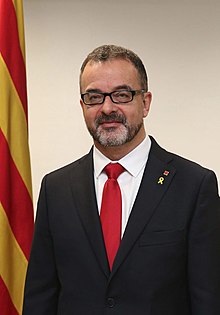If these three Catalan MEPs are not allowed to participate in the next legislature, Europe will have lost more than three active and pro-European members at their service.
Catalonia has always been a committed and reliable partner in the construction of the European project and has actively contributed to defining the diverse Europe of today and tomorrow. Unlike supporters for Brexit, Catalonia has never given up its feeling of being European nor its conviction of being part of the European Union. We say yes to Europe.
Catalan society has shown its engagement with the common project by actively participating, in fact with a turnout 13 points higher than the European average, in the elections to the European Parliament, the only directly elected EU body that represents over 500 million citizens. We, as democrats, must demand that all those who have legitimately won their seat in the European Parliament are allowed to represent their citizens and work to defend their vision of an inclusive, social and better Europe for the five years to come.
When the European Parliament meets for the first time on July 2, Europe will be able to see first-hand the efforts by some to deprive elected officials, and their voters, of their political and democratic rights for purely political reasons. This isn’t new. Last month, the Spanish Parliament and Senate suspended five elected officials, all former members of the Catalan government who are currently on trial, from their duties as representatives. Despite their having legally run and won the elections, taken their seat in parliament, and still awaiting sentence in their trial, they have been denied their political rights.
Last week, former Catalan president Carles Puigdemont, and former minister Toni Comín, were denied access to the European Parliament. At the same time, other newly elected MEPs from Spain were not only able to enter the building, but some even received their official badge. To avoid this continued bungle, the current presidency of the European Parliament, led by Antonio Tajani, ordered its secretary general to suspend all current and future accreditations given to newly elected Spanish MEPs.
A third elected MEP that could be prevented from taking his seat is Oriol Junqueras, the Spitzenkandidat of the European Free Alliance who has so far spent 19 months in preventive detention. The UN Working Group on Arbitrary Detentions recently demanded the immediate release of the Spitzenkandidat and two others currently on trial in Madrid. According to the UN group, they are incarcerated for their political ideas.
Depriving elected oficials of their political rights does not suit a modern European democracy. The legitimacy of the European Parliament could be tested if the rights of those that were elected by the people are not fully protected and if they are not present on July 2 in Strasbourg as legitimate and democratically elected representatives.
Traditionally, Catalan MEPs have been active partners in the European project. They have been present in important European debates, and have always stood on the side of those defending fundamental rights and freedoms. Carles Puigdemont, Oriol Junqueras and Toni Comín, former members of the Catalan government who are currently in exile or in pre-trial detention, have been elected by 1,720,500 citizens of Spain and Catalonia to represent them in the European Parliament. If these three Catalan MEPs are not allowed to participate in the next legislature, Europe will not only have lost three active and pro-European members at their service, but it will have also lost another chance to show to the world that this is, indeed, a space for freedom, democracy, and fundamental rights.










